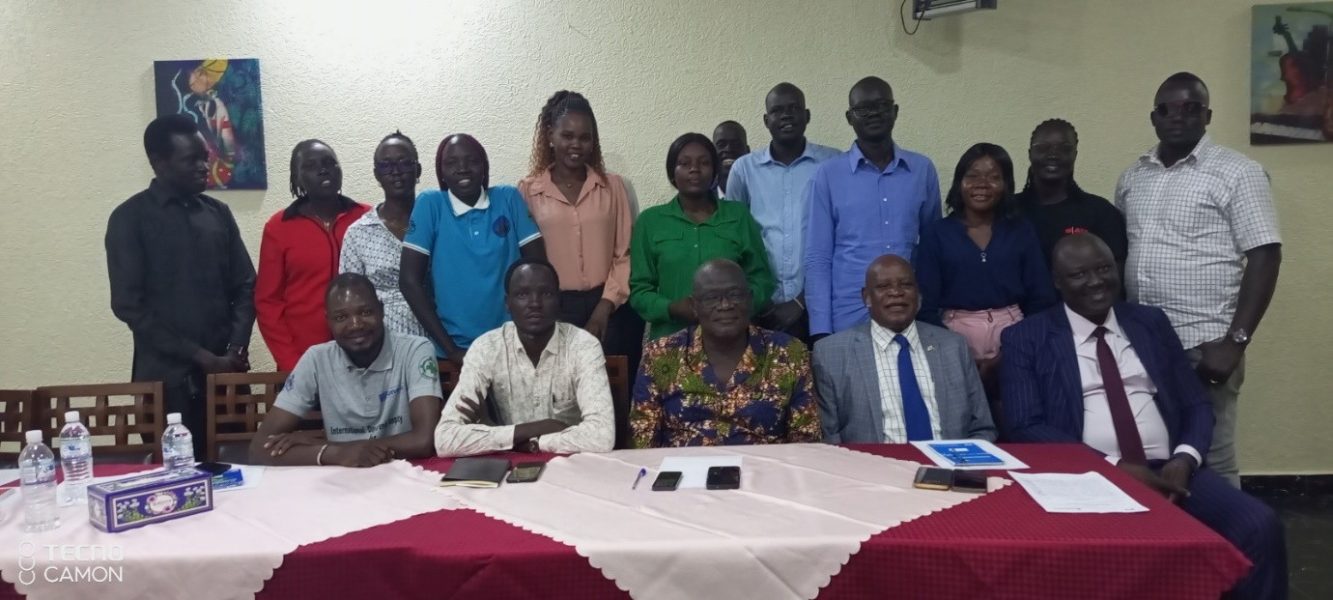
The protection of journalists and the accuracy of their reporting were key themes at the latest meeting between the Union of Journalists of South Sudan (UJOSS) and government stakeholders.
As South Sudan prepares for civic education ahead of the 2026 elections, the media plays a critical role in informing the public, much like other branches of governance.
In line with efforts to ensure a broad civic space across the country, UJOSS convened a second breakfast meeting with key government stakeholders on Friday.
Organized under the theme “The Role of Media in Expanding Civic Education and Public Consultation Ahead of the Anticipated General Elections in South Sudan,” the gathering brought together journalists and government officials to define their roles in the democratic process.
In his opening remarks, Sapana Abuyi, Director General for Information and Media Compliance at the Media Authority, emphasized the importance of strengthening collaboration between the media and government to ensure informed, inclusive, and peaceful elections.
Abuyi reiterated the Media Authority’s commitment to safeguarding journalists as they carry out their duties.
“Journalist safety is paramount, and we will ensure they are protected while doing their jobs,” he stated.
He also urged journalists to uphold ethical standards, maintain neutrality, and strive for balanced reporting. The Media Authority, he noted, would continue engaging various stakeholders to guarantee a free press, free from interference.
Additionally, Abuyi reaffirmed the Authority’s readiness to improve journalists’ working conditions during the elections, including establishing media centers to provide internet access and other essential services.
Oliver Mori Benjamin, spokesperson for the National Transitional Legislative Assembly (NTLA), commended UJOSS for its continuous efforts in fostering a positive working relationship between journalists and the government.
He confirmed that elections remain scheduled for 2026 and encouraged journalists to refine their reporting skills to ensure accuracy and reliability.
Mori urged the media to prioritize informing the public about peace agreement implementations and election preparations. He reiterated the government’s dedication to protecting journalists and providing them with essential information.
“To create a conducive environment for journalists, the parliament remains open at all times to respond and provide necessary information,” he added.
However, Mori warned of misinformation online, urging journalists to intensify efforts to maintain neutrality and uphold professional standards in their reporting.
Oyet Patrick, UJOSS President and a member of the National Constitutional Review Commission (NCRC), encouraged journalists to persist in their mission of ensuring information reaches the public.
He praised reporters for keeping the public informed about developments surrounding the 2018 peace agreement.
Oyet highlighted the need for media institutions to work together to strengthen civic education, emphasizing UJOSS’s commitment to protecting journalists and equipping them with ethical training.
The media plays a vital role in disseminating information, particularly during election periods. It serves as a primary channel for delivering news, updates, and candidate profiles, ensuring that voters have access to crucial election-related content.
Through television, radio, newspapers, and online platforms, journalists provide details on electoral procedures, political developments, and voting guidelines.
Additionally, media functions as a watchdog, exposing misconduct, corruption, and unethical practices by political actors. By supplying timely and factual reporting, journalists shape public opinion, influence voter behavior, and promote electoral transparency.
By holding leaders accountable, the media remains an essential pillar in fostering informed citizenry and democratic participation.

